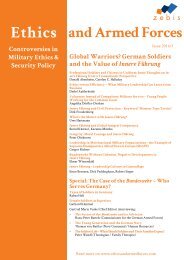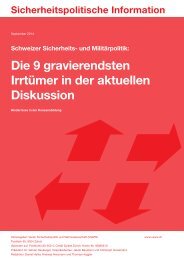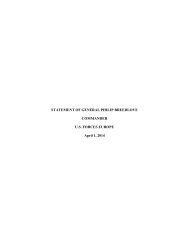FULLTEXT01
FULLTEXT01
FULLTEXT01
You also want an ePaper? Increase the reach of your titles
YUMPU automatically turns print PDFs into web optimized ePapers that Google loves.
TACTICAL THOUGHT<br />
2014 September 29 th<br />
Sociological studies of spaces might generate arguments of field existences,<br />
potentialities of a field emerging or declining or possible field characteristics (de facto<br />
identified or assumed to have potentiality) and with that, I argue thus for the use of field<br />
theory beyond the questions of field or not. It is however, wise to take into<br />
consideration that quite some time is needed for both reading and understanding this<br />
sort of thinking purely theoretically, and then a good proportion of time to also basically<br />
learn and run computer aided correspondence analysis programs such as SPAD.<br />
Such kinds of empirical work with sociology for identification of structuring patterns of<br />
different phenomena, particularly within an area as difficult to measure as war and<br />
warfare, belong to exploratory works in Swedish War Studies. This could however be<br />
argued to be an appropriate approach for a young subject undergoing a process of<br />
academic forming while finding its way as an autonomous discipline. The paradigms of<br />
War Studies and military history, with their measuring focus of non-sociological and<br />
technical aspects, as well as Strategic Studies with their way-finding between Security<br />
Studies and International Relations, are all well-known. However, this is not the case<br />
regarding the tradition of self-reflection. The result per se, of a stated diversified and<br />
dualistic space of tactical thinking in Irregular Warfare might be of a more temporary<br />
interest as a discussion platform in tactical education, such as an example of an argued<br />
relational potentiality regarding tomorrow’s practical discussions and consequences for<br />
land forces tactics.<br />
That result could however, be argued to be of a wider interest in relation to strategy and<br />
operational art. If new interests arose for such a change in this non-comprehensive state<br />
of approach due to the results presented here, it would be an outcome that might<br />
challenge values for certain actors. In such a case, power struggles might emerge in the<br />
larger field of political-military thinking and practice. Using theories and methods that<br />
can be attributed to constructionism generally, I argue that I have worked transparently<br />
from my own ethos, have adapted some analytical tools relevant for analysing and<br />
exploring possible positions of standpoints, relationship tendencies and sociological<br />
characteristic structures. By this approach, I have been able to present new and<br />
important information on the character of a subject not before researched in this manner.<br />
The result of this methodology delivers a possibility to detect or uncover potential<br />
power characteristics in the discourse of contemporary tactics in Irregular Warfare and<br />
Counterinsurgency. This way of examining issues related to fighting structures might<br />
however be of greater value than solely for use with the group of Swedish officers’<br />
articulated preference of tactics. A traditional officer education with a limited relational<br />
approach, risks repetitive work on subjects hiding or avoiding practical influence from<br />
sociological perspectives. A relational approach is a way to challenge existing<br />
paradigms and doxa taken for granted. Views of human practice and sense should<br />
therefore be included to spark off a living, critical and creative theoretical and<br />
methodological discussion for a subject such as War Studies.<br />
124





